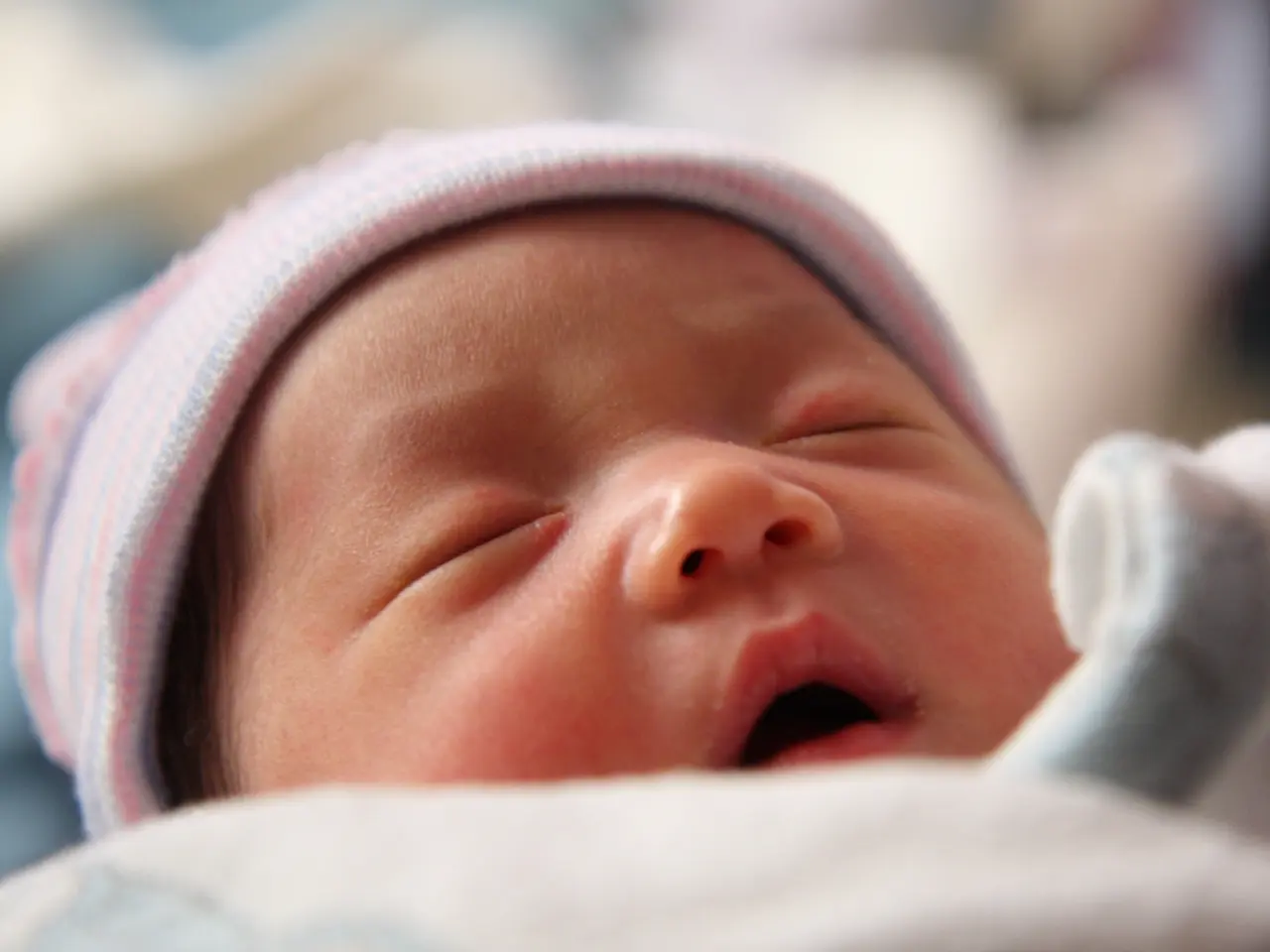Safety of Melatonin for Babies: A Comprehensive Look
In the quest for better sleep for children, particularly those with neurodevelopmental or psychological conditions, melatonin has emerged as a potential solution. This hormone, often referred to as the "hormone of darkness," plays a crucial role in regulating the body's sleep-wake cycle.
Research suggests that melatonin can significantly improve sleep quality in children, particularly those with autism spectrum disorder (ASD) and related conditions. Studies show that it can reduce sleep onset latency (the time it takes for a child to fall asleep) by around 30-40 minutes and increase total sleep duration by about 23 to 57 minutes per night [1][5].
However, when it comes to babies and young children, the evidence is more limited. The use of melatonin in very young children is generally more cautious due to a lack of long-term safety data [3][5].
While melatonin is naturally produced by the body and is considered relatively safe, potential side effects include mild adverse effects such as headaches, restless legs, drowsiness, and nausea [5]. There is no evidence to suggest an increase in seizures in children with epilepsy when using melatonin [5]. However, concerns about possible impacts on puberty or hormone development remain, with no definitive long-term studies confirming these effects yet [3].
Given the limited long-term safety data, melatonin use in children should always be under medical supervision, ideally combined with good sleep hygiene and behavioural interventions rather than as a first or sole treatment [3].
Here's a summary of the current evidence:
| Aspect | Evidence in Children | Notes | |-------------------------------|-----------------------------------------------------|-----------------------------------------------------------------------------------------| | Effectiveness | Improves sleep onset and duration in children with ASD/insomnia | Reduces sleep latency by ~30-40 min, increases total sleep by ~23-57 min | | Age groups studied | Mostly children and adolescents; data in babies limited | Use in infants is less researched; medical supervision is essential | | Side effects | Generally mild, few reported | No increase in seizures; some mild adverse effects noted | | Long-term safety | Insufficient clinical trial data | Unknown long-term hormonal or developmental impacts | | Recommendations | Use under pediatric or sleep specialist guidance | Should supplement—not replace—sleep hygiene and behavioural treatments |
If a child's sleep problems persist after trying behavioural modifications, it may be a good idea to consult a paediatrician or sleep specialist. It's also important to remember that infants aged 4-12 months should get a total of 12-16 hours of sleep every 24 hours.
When it comes to administration, melatonin usually comes in pill form, but for children who have difficulty swallowing tablets, liquids, dissolvable strips, and gummies are available.
In conclusion, while melatonin shows promise for managing sleep difficulties in children, particularly those with ASD, it should be used cautiously and only under professional supervision due to limited long-term safety data [1][3][5]. Parents should always speak with a doctor before giving a child any form of melatonin.
- Melatonin, known as the "hormone of darkness," can significantly improve sleep quality in children with autism spectrum disorder (ASD) and related conditions, reducing sleep onset latency and increasing total sleep duration.
- However, the use of melatonin in babies and young children is generally more cautious due to a lack of long-term safety data.
- While melatonin is naturally produced by the body and considered relatively safe, potential side effects include headaches, restless legs, drowsiness, and nausea.
- The evidence supporting melatonin's use in infants is less researched; medical supervision is essential when using it in this age group.
- Given the limited long-term safety data, melatonin use in children should always be under medical supervision, ideally combined with good sleep hygiene and behavioral interventions.
- If a child's sleep problems persist after trying behavioral modifications, it may be a good idea to consult a pediatrician or sleep specialist.
- When considering melatonin administration for a child who has difficulty swallowing tablets, liquids, dissolvable strips, and gummies are available as alternatives.




